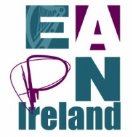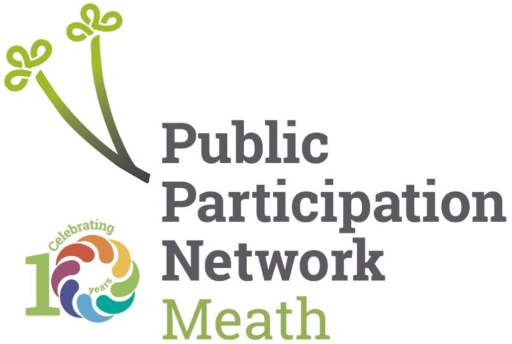EAPN Ireland Flash : October 2021

European Anti-Poverty Network Ireland
Newsflash October 2021
EAPN Ireland Poverty Watch
We are delighted to announce the publication of this years EAPN Ireland Poverty Watch for 2021- Achieving Equality in a Time of Recovery. EAPN Ireland calls on the Government to ensure the post-pandemic recovery process is one based on equality, social inclusion, and anti-poverty policies and initiatives, ensuring those who are furthest behind, and the people who were most impacted by the COVID-19 pandemic, are not once again left behind.
EAPN Ireland Statement Budget 2022
EAPN Ireland has issued a statement on Budget 2022, welcoming increases to core welfare rates however calling on the Government to fully commit to bench-marking social welfare rates to the Minimum Essential Standard of Living, as a means of addressing poverty, and ensuring we can meet the anti-poverty commitments Ireland has signed up to. You can read the statement here.
EAPN Ireland Ireland- “Analysing the Increasing Demand for Basic Necessities as Provided by the Community and Voluntary Sector”
EAPN Ireland has been successful in receiving funding from the Irish Human Rights and Equality Grant Scheme for a research project entitled “Analysing the Increasing Demand for Basic Necessities as Provided by the Community and Voluntary Sector”. The project builds upon the work of the Basic Necessities Working Group coordinated by EAPN Ireland, made up of organisations operating within local communities and on a national basis, responding to the increasing demand from low income households for help with basic necessities such as food, heating etc. The successful tender for conducting the research was submitted by TASC, led by Dr Shana Cohen and Alex O Connor. The research project will be completed and a report of the findings published in June 2022. If this research is relevant to you, your work, or your service users, and you wish to partake in the research process, please contact irene@eapn.ie.
The Community Platform invites you to the online launch of: Principles for delivering a high quality, inclusive and accessible Public Childcare Model on Thursday 11th November @ 11:30
The Community Platform believes that the progressive delivery of a high quality, inclusive and accessible public childcare model is urgently needed. Lessons from the past, and reinforced by the Covid-19 pandemic, show the important role of the state in providing key public services and in ensuring universal access. A properly designed and delivered public childcare model can play an important role in addressing poverty and disadvantage.
The Six Principles for a Public Childcare Model are:
| 1. Child centred 2. State responsibility |
3. Investment 4. Quality, inclusion and accessibility |
5. Equality 6. Decent working conditions |
Following the presentation of the Platform’s Principles the launch will have speakers outlining their support for a public model of childcare from their perspective as parents, childcare providers and professionals. A panel of speakers, including representatives from the community sector, trade unions and political parties will respond to these proposals and perspectives.
You can register for the event here. Anyone requiring Irish Sign Language contact communityplatform@eapn.ie.
EAPN Members:
The Minimum Essential Standard of Living (MESL) 2021
The Vincentian Partnership for Social Justice has updated its research on the Minimum Essential Standard of Living (MESL) for 2021.This research provides the Community and Voluntary Sector with evidence regarding the adequacy of household income, based on social welfare payments, minimum wage earnings, and the ability of a wide variety of household types to achieve the minimum acceptable standard of living, meeting all of their physical, psychological and social needs. Once again the research shows that particular households, such as lone parent households, are experiencing high levels of income inadequacy, with findings also showing a marked difference in income adequacy between rural and urban areas. EAPN Ireland, alongside EAPN Ireland policy group members, have persistently advocated for all social welfare payments to progressively move towards adequacy as benchmarked against the Minimum Essential Standard of Living. You can find further information here.
EAPN Europe News :
EAPN Europe Poverty Watch 2021
Amid the COVID-19 pandemic, the most vulnerable in our societies face the greatest challenges. National EAPN members have been releasing their own Poverty Watches for 2021 and EAPN Europe will again assemble them into a summary EU Poverty Watch. You can check out the Poverty Watch publications from EAPN European networks, including Ireland, here.
Voices From the Ground
People Experiencing Poverty (PeP) are and have been at the forefront of the socio-economic effects of the pandemic and their stories deserve to be heard! EAPN Europe has introduced ‘Voices From The Ground’ videos: a series of videos from all across Europe, giving first-hand accounts of poverty from people experiencing poverty. In addition to detailing the symptoms of poverty, solutions are proposed which form a part of a ‘Poverty Vaccine.’ All the videos are now published on Facebook and Instagram. You can find information here.
EU Institution News:
Mini-Toolkit on European Social Funds
Fintan Farrell, former President and Director of EAPN Europe, has written a mini-toolkit on how best to use the European Social Fund in tackling poverty and social exclusion. The toolkit draws on exchanges during peer-to-peer training on actions to combat poverty and the social exclusion of children, held in January 2021. It can only be to the benefit of everyone that someone with on-the-ground experience has drafted this document for the European Commission. You can download the toolkit here.
Third FEAD Community Thematic Seminar | European Commission
The third FEAD Community Thematic Seminar on ‘Monitoring and outreach of FEAD-funded measures for the most deprived people’ took place on 6 – 7 September 2021. The event, hosted by the Estonian Ministry of Social Affairs, explored how to improve monitoring and evaluation of FEAD-funded measures by end recipients and how to reach out to the most deprived people. Additionally, participants had the opportunity to learn about the European Commission’s Open Data Portal for European Structural and Investment Funds. You can find more information here.

